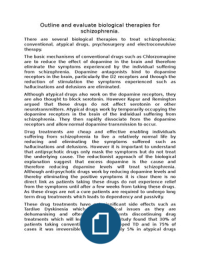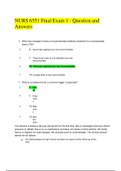Essay
Outline and evaluate biological therapies for Schizophrenia
- Institution
- AQA
This is an essay which received a A* 12/12. well structured and coherent. Excellent writing style and including relevant critical evaluation and a detailed outline.
[Show more]




